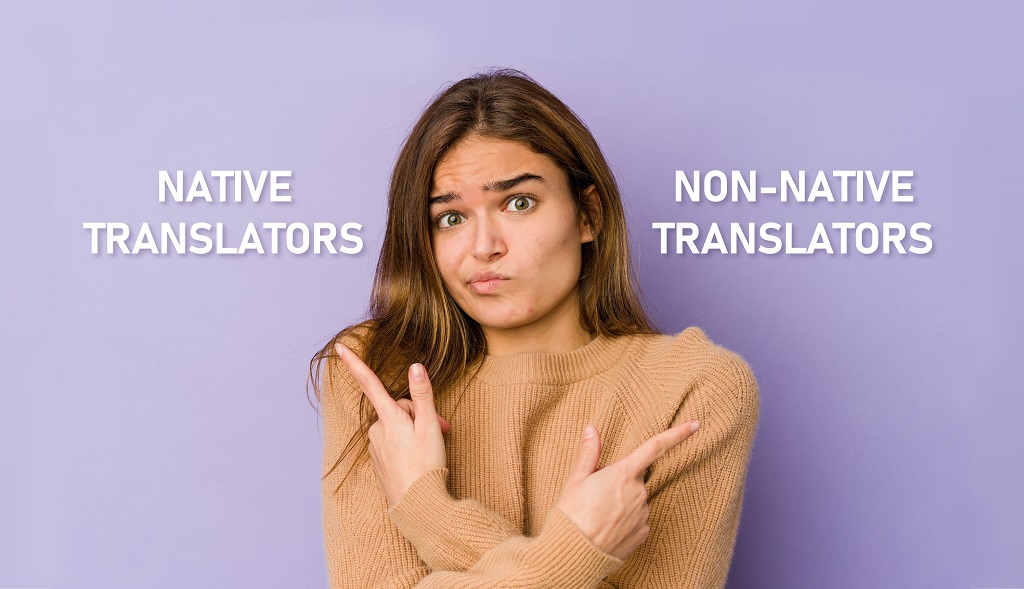While both native translators and non-native translators have valuable skill sets, native translators often have the upper hand over non-native translators thanks to their organic understanding of the target language and culture. A native translator translates source text into their mother tongue. They have extensive knowledge of a secondary language from which they translate into their first language. A non-native translator is one that translates from their mother language into a second language, which they have extensive knowledge of.
Keep reading to learn about the key differences between working with native translators and non-native translators.
Writing Skills

While reading the source copy, a native translator will be able to infer the meaning easily enough and will know when they need to do research to complete their understanding of the text. If you flip the table though and expect them to translate content from their native language to a secondary language, this is where they may fall behind a native translator of the target language.
For example, if a German translator is translating a Russian text (their second language) into German (their first language), they can understand the text easily enough because of their extensive knowledge of the second language and can do more research as necessary. If, in turn, they needed to translate text from German to Russian, their job would become a lot more difficult. They could fall behind a translator who is Russian and a native translator of the target language.
A native translator will be less likely to make grammar mistakes or overly complicate their grammar use in their native language. Proper sentence flow comes so much more naturally in your native tongue, which is what you’ll want the reader to experience. In addition, native translators can create more complex written content and will have more opportunities to use the best possible word choices. It’s important to note that some non-native linguists have years of experience gained from living many years in another country using the second language and can have proficient use of the second language.
Cultural Knowledge

Knowledge of culture plays an important role in both translation and transcreation. Especially when it comes to forms of content that rely heavily on cultural references, such as entertainment subtitles or marketing campaigns. When conveying or adapting cultural elements in translation, once again, native translators have an advantage as they can cater to the target audience with their organic knowledge. References relating to politics, movies, current events, and common jokes are all useful cultural aspects available to native speakers. This is especially true when it comes to dialect choices.
Because a language can have various dialects often associated with physical locations, a native translator will usually be aware of relevant dialect choices that a fluent, but non-native translator won’t be privy to. A simple example of how dialect can vary is seen in the United States, where the use of English is modified by region. For example, Midwestern residents refer to “soda” as “pop”, whereas someone on the West or East Coast would never call a soda pop. A literal translation while technically correct may not be as accurately expressive as a non-literal translation by someone with regional expertise.
Creative Potential

For both translation and transcreation, creativity is often necessary to do the job most effectively. A native translator can frequently assist with translating humor and cultural references that would fall flat if translated literally. Marketing materials are a prime example of where creativity can shine. When trying to sell a product to a new culture, a native translator will be more aware of what could potentially offend that culture, what they will find funny, or what they will relate to. Not to mention, language devices like rhyming, idioms, and alliteration will be much more attainable by a native translator, leaving the native translator with more creative opportunities.
At Terra Translation, our translators are native speakers of the target language. We follow the standards, set by ISO 17100 in which we have certification. This standard, for translation services requirements, states that translation work should be completed by a professional translator translating source text into their native language.









